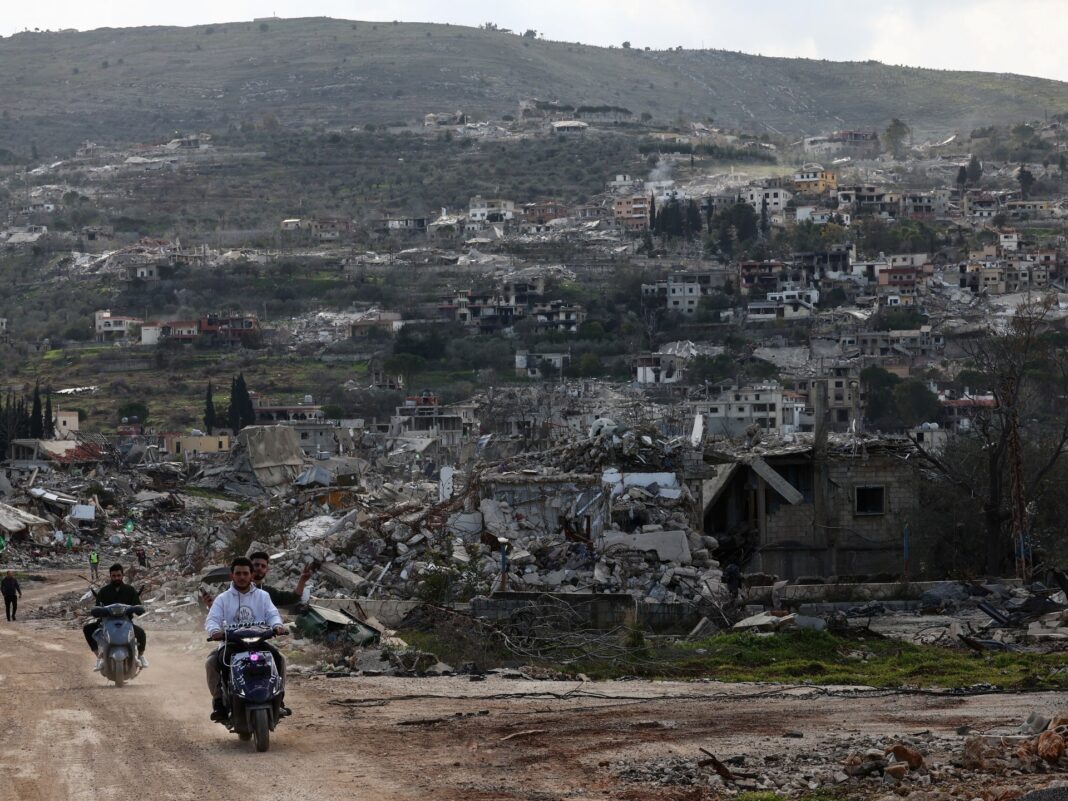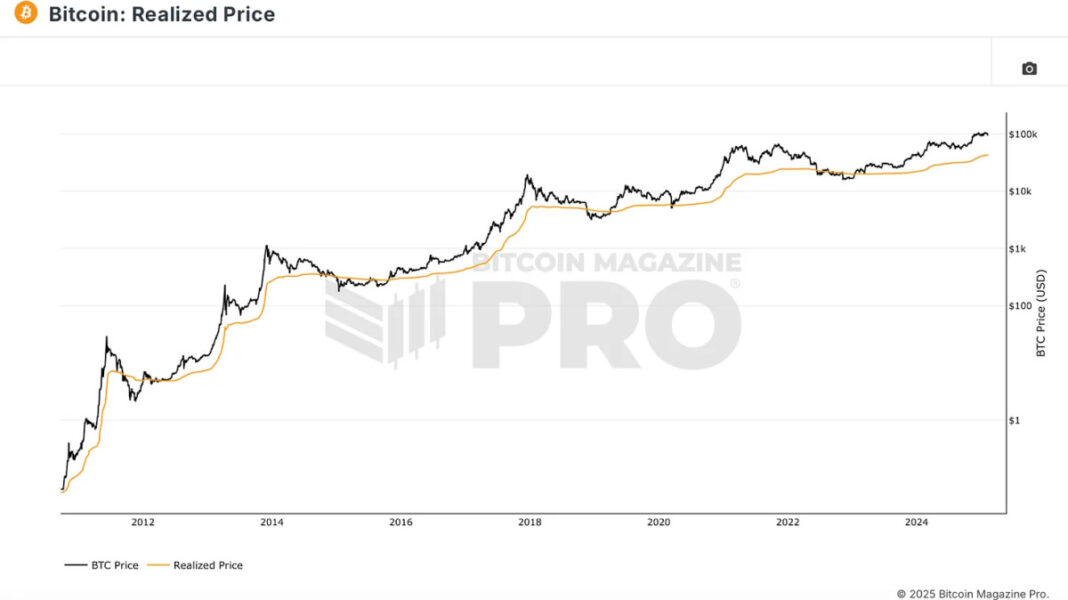Beirut, Lebanon – Israel is keeping troops in five locations on Lebanese territory, raising fears that it is planning a new long-term occupation.
Israel was initially required to withdraw its army from southern Lebanon on January 26 as part of a ceasefire agreement with the Lebanese group Hezbollah, which came into effect on November 27.
As part of the agreement, Israeli troops and the Lebanese Shia group Hezbollah were to both withdraw from southern Lebanon – an area that the latter had long dominated – and allow the Lebanese army and United Nations peacekeepers to deploy and control the region.
However, Israeli troops stayed in several Lebanese villages beyond January, pushing the Lebanese government and Hezbollah to accept a new timeframe for Israel’s withdrawal on February 18.
The deadline has now passed and Israel still refuses to fully leave Lebanon.
This is all you need to know about the implications of Israel’s occupation.
Why is Israel in Lebanon in the first place?
On October 1, 2024, Israel sent troops over its northern border into Lebanon as part of a wider war with Hezbollah.
Israel and Hezbollah had been engaged in a low-intensity conflict for almost a year prior to that. The clashes began a day after Hamas and other Palestinian armed groups attacked southern Israel on October 7, 2023, and Israel began its war on Gaza.
Hezbollah initiated the clashes with the stated aim of pressuring Israel to end the war on Gaza, which has now killed more than 61,700 Palestinians.
However, Israel gradually escalated its conflict with Hezbollah instead and eventually invaded southern Lebanon with the stated aim of securing its own borders so that thousands of Israelis could return to their villages in northern Israel. The Israelis had been forced to leave because of Hezbollah rocket fire, much as vast swaths of southern Lebanon were depopulated as a result of Israeli attacks.
Israel’s attacks on Lebanon killed nearly 4,000 people – many civilians – and uprooted hundreds of thousands from their homes.
Why are the Israelis staying in Lebanon
To put it simply, no Lebanese force right now has the strength or ability to force Israel out of its territory if the latter does not want to leave.
The ceasefire agreement is supposed to be monitored by a peacekeeping mechanism, which is chaired by the United States and involves France. The US is Israel’s closest ally and has typically allowed Israel to betray its verbal commitments, as well as commitments under international law.
The US does not appear to be pushing Israel to now fully withdraw from Lebanese territory in line with its ceasefire agreement with Hezbollah.
On the contrary, Israel claims that it will remain in “five strategic points” until the Lebanese army fully implements its side of the deal.
Some experts believe that Israel’s presence and refusal to withdraw could eventually reignite hostilities.
Where are they staying exactly?
Israeli forces will remain on five hilltops that sit at various points along the Lebanese border with Israel. They are al-Aziyah, al-Awaida, el-Hamames, Jabal Bilat, and Labbouneh.
It should also be noted that Israel has for decades occupied the Shebaa Farms, a small area along the border between Lebanon and Syria’s Golan Heights, an area that it has also illegally annexed. Lebanon claims the Shebaa Farms as its own, but Israel says it is part of the Golan Heights, referring back to a pre-existing disagreement between Syria and Lebanon that dates back to the 1940s.
What has been the reaction?
Lebanon’s government has opposed any lingering Israeli presence on its territory and said Israel must withdraw as part of the ceasefire agreement.
Israel claimed its actions were a “temporary measure” and were approved by the United States-led body monitoring the ceasefire.
But Lebanese President Joseph Aoun previously raised concerns that a complete withdrawal would not be achieved by the deadline, saying “the Israeli enemy cannot be trusted”.
Meanwhile, Hezbollah’s leader, Naim Qassem, also called on the Lebanese government to enforce the ceasefire agreement and said Israel “must withdraw” on February 18 and that it has “no excuse”.
“It is the responsibility of the Lebanese state to make Israel withdraw,” he said in a televised address.
Hezbollah has also said that it will consider any Israeli troops still on Lebanese soil as an occupying force. The group previously fought against an Israeli occupation of southern Lebanon that stretched from the 1980s, forcing Israeli forces out in 2000.
However, Israeli and US leaders have been dismissive.
US Secretary of State Marco Rubio simply called on the Lebanese state to fully disarm Hezbollah, while Israeli Prime Minister Benjamin Netanyahu promised that Israel will “enforce” the ceasefire agreement.
European diplomats have struck a more conciliatory tone, with France proposing last week that UN peacekeepers replace Israeli troops in the five hilltops to preserve the ceasefire and ensure mutual security.
The UN peacekeeping mission in south Lebanon, UNIFIL, also released a statement saying that it hoped Israel would withdraw without any more delay.
“Another delay in this process is not what we hoped would happen, not least because it continues a violation of United Nations Security Council resolution 1701 (2006). This should not, however, overshadow the tangible progress that has been made since the Understanding came into force in late November,” said UNIFIL in its statement.
Are Israel’s actions legal?
Srinivas Burra, a legal scholar and professor at South Asian University in New Delhi, India, told Al Jazeera that Israel’s invasion of Lebanon before the ceasefire agreement was illegal and that its continuing presence in violation of the agreement appears to be illegal, as well.
In addition, Burra said the only credible argument Israel can muster up is that the Lebanese army is unable to secure the south of Lebanon from Hezbollah. Even then, he said, Israel must indicate that its occupation would be temporary by specifying a new timeframe for its withdrawal.
“I think Israel has a weak argument to stay in [Lebanon],” Burra told Al Jazeera.
But Michael Becker, an assistant professor of international law at Trinity College, Dublin, says that Israel may have a legal basis to stay in south Lebanon
He said that according to international law, any party has the right to suspend its obligations to an agreement if another party has not “fulfilled an obligation that is essential to accomplishing the agreement’s overall purpose”.
In addition, he said the terms of the ceasefire stipulate that Israel “should” withdraw from Lebanon after 60 days. The wording indicates that the timeframe for Israel’s withdrawal from Lebanon is a recommendation.
“Ultimately, any decision by Israel not to complete the [army’s] withdrawal from Lebanon within the 60-day period strongly points to the need for all parties to identify clear benchmarks to facilitate the completion of Israel’s withdrawal,” he told Al Jazeera.
It should be noted that Israel has occupied Palestinian territory, including in the West Bank, East Jerusalem and Gaza, since 1967, and has repeatedly ignored United Nations resolutions that it end its occupation, as well as an International Court of Justice advisory opinion last year that its occupation and the establishment of settlements in occupied territory was illegal under international law.
What happens next?
Israel has warned that it is ready to resume hostilities. The Israeli army has not hesitated to target residents returning to their homes so far. At least 22 people were killed by Israeli forces on January 26, the initial deadline for withdrawal.
For its part, Hezbollah was deeply battered by the war with Israel, which saw it lose much of its top leadership and reportedly a significant amount of its arsenal. It is unlikely to want to give the Israelis any justification to resume bombing targets in Lebanon.
Still, Israel’s insistence that it remain in the border locations has set an obstacle for the newly formed Lebanese government’s efforts to gain the entire country’s trust.
Lebanon said that it is working diplomatically with the United States, France and UNIFIL for a solution that respects its sovereignty.
Lebanon’s Foreign Minister Joe Rajji said on local television on Monday that he proposed UNIFIL take over the five points that Israel is occupying. However, he added that the proposal was rejected.


